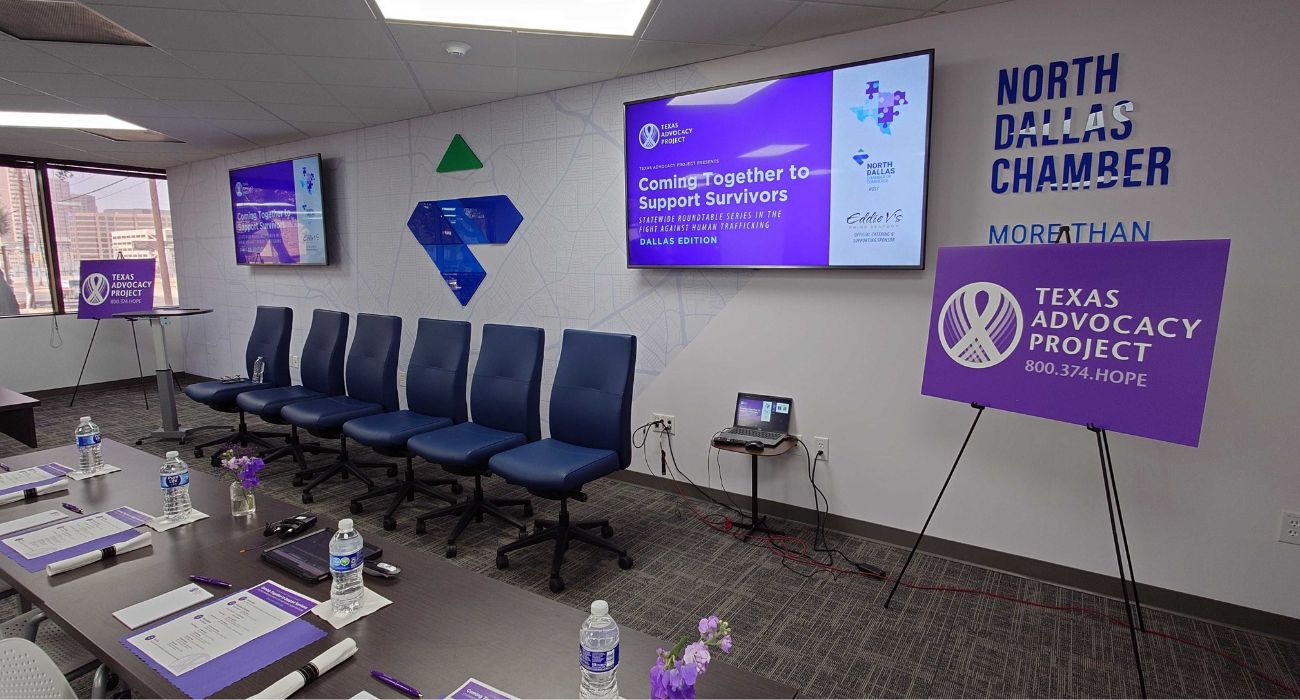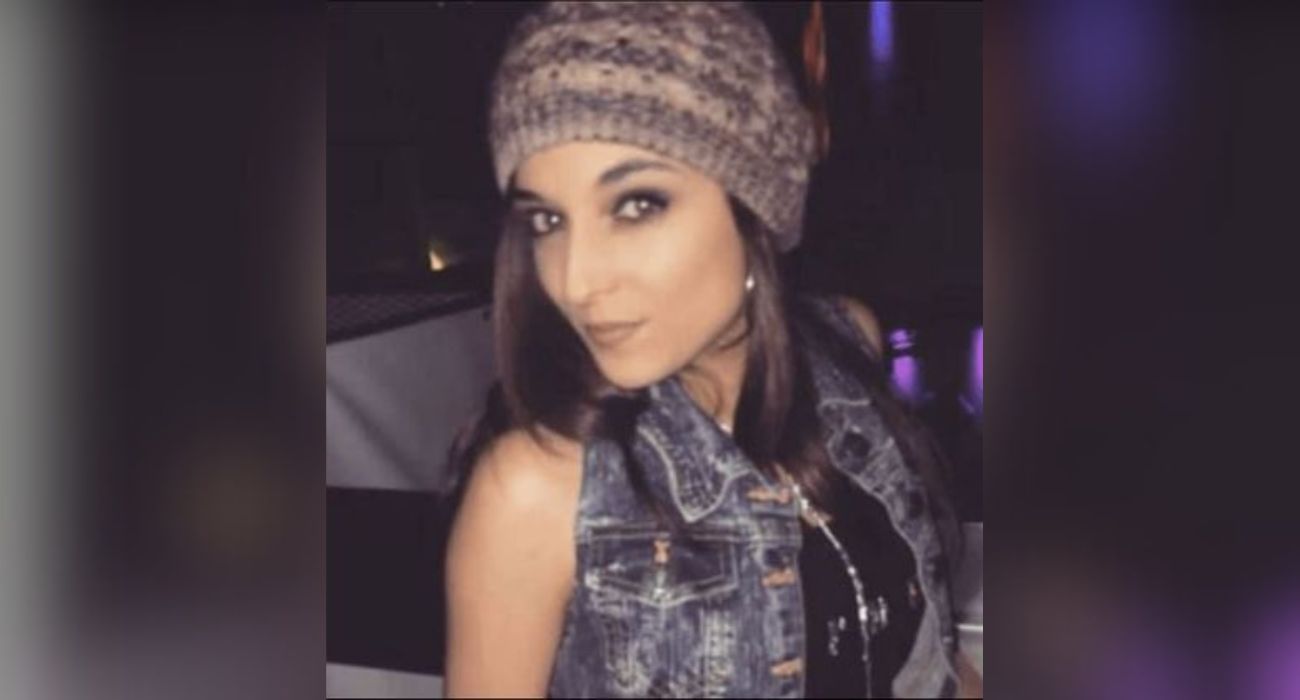Local and state officials along with the Texas Advocacy Project met on Monday in Dallas for a roundtable discussion on how to combat human trafficking in Dallas.
The discussion on February 27 is part of a statewide series that aims to engage and encourage the business community in Dallas to help survivors of abuse.
The Dallas Express was in attendance during the roundtable event, alongside state and local law enforcement, local community colleges and businesses, and others.
Dallas City Councilwoman Gay Donnell Willis, who presides over District 13, introduced the roundtable discussion.
The purpose of the roundtable event was to inform the business community and bring awareness of how prevalent human trafficking is in Dallas, how it can happen at any moment, and what can be done to help prevent it.
For instance, in April of last year, a teenage girl was abducted from a Dallas Mavericks game, as reported by The Dallas Express. The victim was found in Oklahoma 10 days later, and eight suspects were arrested on human trafficking charges.
During the roundtable event, The Dallas Express sat down with Heather Bellino.
Bellino is the CEO of Texas Advocacy Project (TAP), a non-profit organization that seeks to end dating and domestic violence, sexual assault, and stalking in Texas.
TAP has been around for over 40 years and, in addition to the services mentioned, TAP also helps survivors of sexual assault, human trafficking, and child abuse by offering free civil legal and social services.
Bellino explained that the roundtable is important for forging lines of communication between the different local entities.
“This roundtable is an incredible opportunity for these agencies to have open dialogue with the community to share what we are doing, how we intersect on these systems, and how everybody can come together in support of survivors of human trafficking and that we can have open and candid conversations,” said Bellino.
“We can talk about reduction, we can talk about getting people back into the workforce, we can talk about how health and human services supports these efforts but importantly … we all have to work together, we need a coordinated community response in order to make any sort of [progress],” Bellino explained.
TAP works in partnership with law enforcement agencies like the Texas Alcoholic Beverage Commission and the Dallas Police Department.
“The biggest resources that we need are these partnerships, because without these partnerships we really can’t take care of victims the way that they need to be,” said Maj. Devon Palk, who heads the Special Investigations Unit for DPD.
“You know there’s so much we can do as law enforcement when it comes to the investigative side of things, but in order for these investigations to be successful, we have to have these partnerships so that we can take care of these victims to get them the counseling and the resources they need so that they can reenter society after incidents like this,” he continued.
Human trafficking has increased nationwide, but so has the prosecution of those accused of this offense.
The number of people prosecuted for human trafficking in the U.S. increased 84% — from 729 to 1,343 — between 2011 and 2020, according to the Bureau of Justice Statistics.
“I think anytime we can get any media outlet, any news outlet to shine a light on these atrocities it’s going to do a lot of good,” said Bellino.
“Because, again, if we don’t have a groundswell of the community saying, ‘This is not acceptable and we’re here to help make a change,’ nothing will change. So every time you could shine a light on it, it is a gift to every victim out there. Everybody that is being groomed right now, you are helping them. You are helping to give them their restorative opportunity,” said Bellino.
For more information about human trafficking or for help, contact the TAP at 800-374-HOPE.







Several thoughts about this subject.
One of my personal friends, trafficked at 14, couldn’t report the crime to the police (not Dallas) because several highly placed individuals in the local government were CONSUMERS. Now the consumers and paid-off supporters are in governments at all levels. No, not every Congressman or Senator is a champion of trafficking or a consumer of trafficked humans. But as we consider the northbound traffickers at the Southern Border, we may be afraid to ask why the politicians of either party aren’t taking positive action.
If you neutralize a trafficker, another trafficker is in the wings to refill the position. If you neutralize a consumer, the trafficker must work hard to find a new customer. There is no pool of customers pining away for a trafficked human.
Is this upcoming roundtable going to be “ain’t it awful” and the crying of crocodile tears?
Human trafficking is being used as a new buzzword so the government can keep their boot on the necks of the citizenry since the citizenry is no longer falling for the War on Drugs.
Human trafficking ,sex trafficking, drug trafficking , will never stop only get worse. When the people at the top are wealthy and getting their cut, they look the other way , because they are enjoying the kind of lifestyle the money brings! The boats, private airplanes to get in our country u til the drugs affect their children then they try to do something about it it, but it’s just another casualty. Too many people with their hands in the cookie jar! Lot of our politicians are so crooked ! Who can you trust? God will separate sheep from the goats all in his timing not our timing. All we can do is pray for our nation, our politicians, our policeman (corrupt ones included)let God handle it.